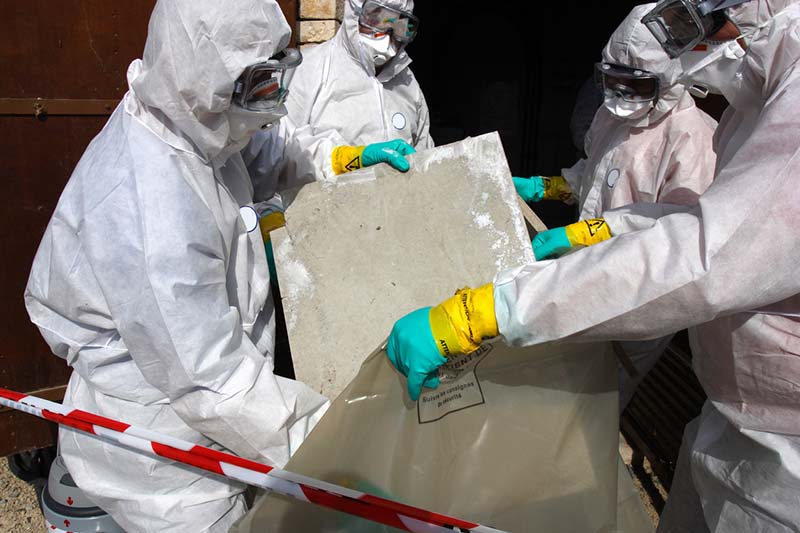
What is Asbestos-Related Mesothelioma?
Malignant mesothelioma is a tumor of the tissue (mesothelium) lining the lungs, stomach, heart, and other organs but the most common form affects the lungs. The most common symptoms include cough, chest pain, and shortness of breath. Other symptoms include fever or night sweats, fluid around the lungs, fatigue and muscle weakness. While treatments are available to extend life expectancy and quality of life, it is a rare and aggressive cancer and there is no cure.
Risk Factors for Mesothelioma
The fact that it takes 20-50 years to develop means that the average age of diagnosis for mesothelioma is 65 or older. The people most at risk for developing this cancer are those who have worked directly with the mineral asbestos or with products containing asbestos. Asbestos in the workplace, in homes, schools, public buildings and naval ships has led to dangerous exposure. Veterans, firefighters, miners, auto mechanics, construction workers, HVAC technicians, electricians, textile mill workers and their family members are all at risk due to their possible long term exposure to asbestos. Those with a family history of mesothelioma and those who have had radiation therapy for cancer in the chest area might also have an increased risk of mesothelioma.
Prognosis and Life Expectancy
As with all cancers, the earlier mesothelioma is detected, the better the outcome that can be expected. The cancer falls into one of four stages, based on size and location. In stage 1, the cancer is localized and surgery can be effective. Median life expectancy at stage 1 is 22.2 months. In stage 2, tumors have spread to adjacent structures. While surgery is still an option, median life expectancy is 20 months. In stage 3, cancer has spread to regional lymph nodes and surgery is an option only in select cases. The median life expectancy in stage 3 is 17.9 months. In stage 4, tumors have spread to distant organs. Chemotherapy and immunotherapy ease symptoms and the median life expectancy is 14.9 months.
Age, gender, and overall health are factors that affect the outlook for those diagnosed with mesothelioma. Younger patients and women have a better prognosis than older men.
